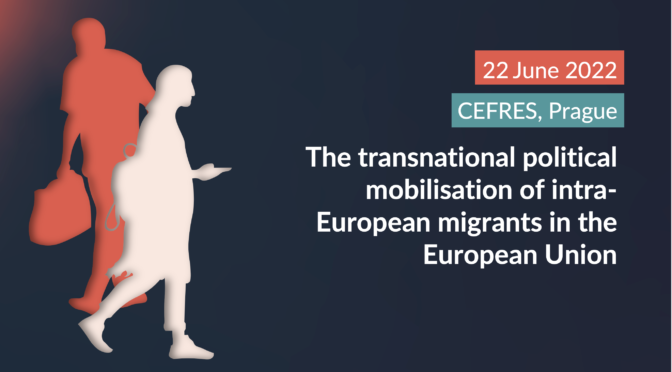
In the interstices of European citizenship. The transnational political mobilization of intra-European migrants in the European Union. II.
The multidisciplinary research workshop is organised in partnership between the Marc Bloch Centre in Berlin and CEFRES in Prague. It aims to bring together specialists in migration, European citizenship and transnational political practices to discuss the question of the ordinary relations of intra-European migrants to the policies of diaspora implemented, according to very different modalities, by their country of origin.
Session 2 (22.06.2022): CEFRES, Na Florenci 3 – Prague
When: Wednesday 22nd June, 14:30–18:30
Where: CEFRES Library, Prague & online on Zoom
https://us02web.zoom.us/j/85421454854
Language: English
Organised by:
CEFRES, Prague Cédric Pellen (University of Strasbourg/Centre Marc Bloch in Berlin)
You can download the updated program here.
See the description & program below.
Continue reading In the interstices of European citizenship (2) →
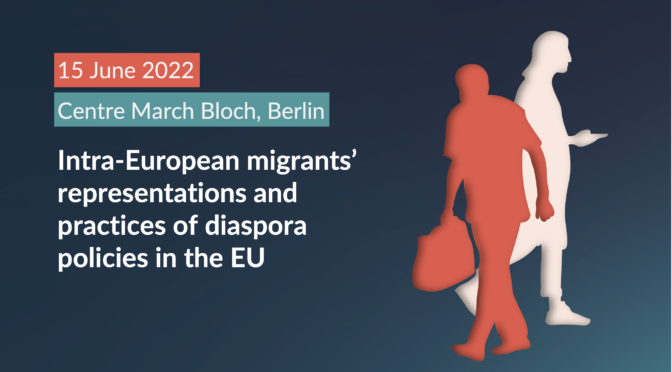
In the interstices of European citizenship. Intra-European migrants and national diaspora policies in the European Union. I.
The multidisciplinary research workshop is organised in partnership between the Marc Bloch Centre in Berlin and CEFRES in Prague. It aims to bring together specialists in migration, European citizenship and transnational political practices to discuss the question of the ordinary relations of intra-European migrants to the policies of diaspora implemented, according to very different modalities, by their country of origin.
Session I (15.06.2022): Centre Marc Bloch, Friedrichstraße 191 – Berlin
When: Wednesday 15th June, 14:30–18:00
Where: Salle Germaine Tillion, Centre Marc Bloch, Berlin & online on Zoom : https://us02web.zoom.us/j/88064656797
Language: English
Organised by:
Cédric Pellen (University of Strasbourg/Centre Marc Bloch in Berlin) CEFRES, Prague
You can download the updated program here.
See the description & program below.
Continue reading In the interstices of European citizenship (1) →
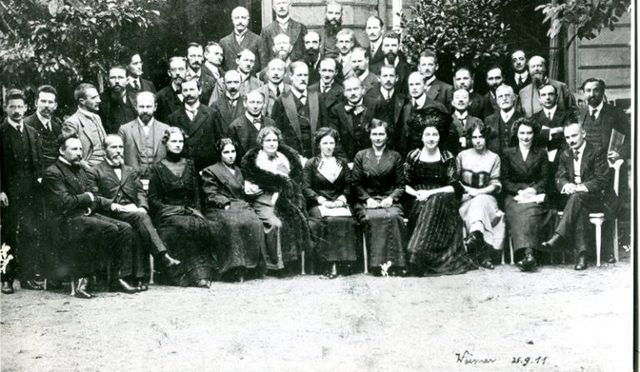
Jewish Women in Psychoanalysis: Central-European Careers and Emigrations
5th session of the Seminar “Rethinking Psychoanalysis in Central Europe. Interdisciplinary and Transnational Perspectives”
When: Tuesday, June 14, 2022, 4:00-6:00 pm
Where: At CEFRES and online (to register please contact claire(@)cefres.cz)
Language: English
Coordinator : Agnieszka Sobolewska (University of Warsaw/Sorbonne University/CEFRES)
Guest-speakers :
- Klara Naszkowska (Union Theological Seminary/Center for Jewish History)
- Anna Borgos (Hungarian Academy of Sciences)
Discussants :
- Clara Royer (Sorbonne University)
- Mateusz Chmurski (Sorbonne University)
- Mathieu Lericq (Sorbonne University)
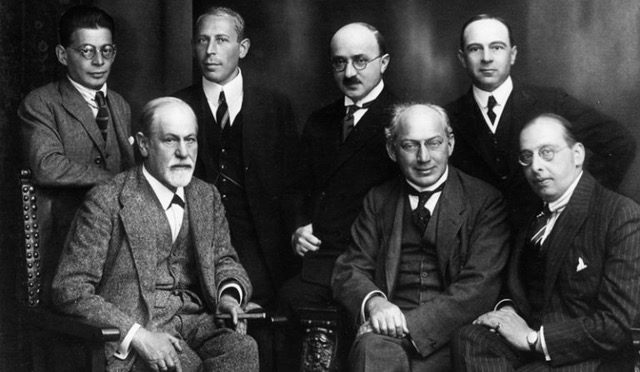
Polish Queer Literature, Psychoanalysis and Eve Kosofsky Sedgwick
4th session of the Seminar “Rethinking Psychoanalysis in Central Europe: Interdisciplinary and Transnational Perspectives”
When: Tuesday, June 7, 2022, 5:30–7:00 pm
Where: At CEFRES and online (to register please contact: claire(@)cefres.cz)
Language: English
Coordinator : Agnieszka Sobolewska (University of Warsaw/Sorbonne University/CEFRES)
Guest-speakers :
- Błażej Warkocki (Adam Mickiewicz University)
Discussants :
- Agnieszka Sobolewska (University of Warsaw/Sorbonne University/CEFRES)
- Małgorzata Smorąg-Goldberg (Sorbonne University)
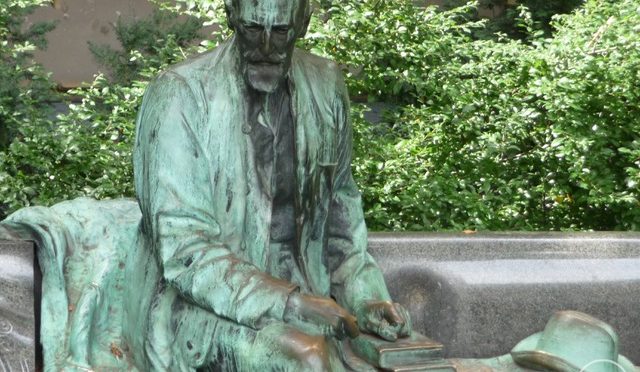
Reading Sándor Ferenczi: Mutual Analysis and the Hungarian Origins of Trauma Theory
3rd session of the Seminar “Rethinking Psychoanalysis in Central Europe. Interdisciplinary and Transnational Perspectives”
When: Tuesday, May 24, 2022, 4:00-5:30 pm
Where: At CEFRES and online (to register please contact claire(@)cefres.cz)
Language: English
Coordinator and discussant : Agnieszka Sobolewska (University of Warsaw/Sorbonne University/CEFRES)
Guest speaker : Peter L. Rudnytsky (University of Florida/American Psychoanalytic Association)

The EU Environmental Policy under the French and Czech Presidencies of the Council of the European Union
International Workshop co-organized by Palacký University, Olomouc (CZ), University Clermont Auvergne, and CEFRES, under the framework of the French Presidency of the Council of the European Union
When: Friday 20th May, 9:00–15:40
Where: Faculty of Law, Palacký University, Olomouc & online : https://us02web.zoom.us/j/89812295559
Language: English
Organisation:
Arthur Thevenet (Clermont Auvergne University)
Valentin Bayeh (Clermont Auvergne University)
See the program below.
Continue reading The EU Environmental Policy →






